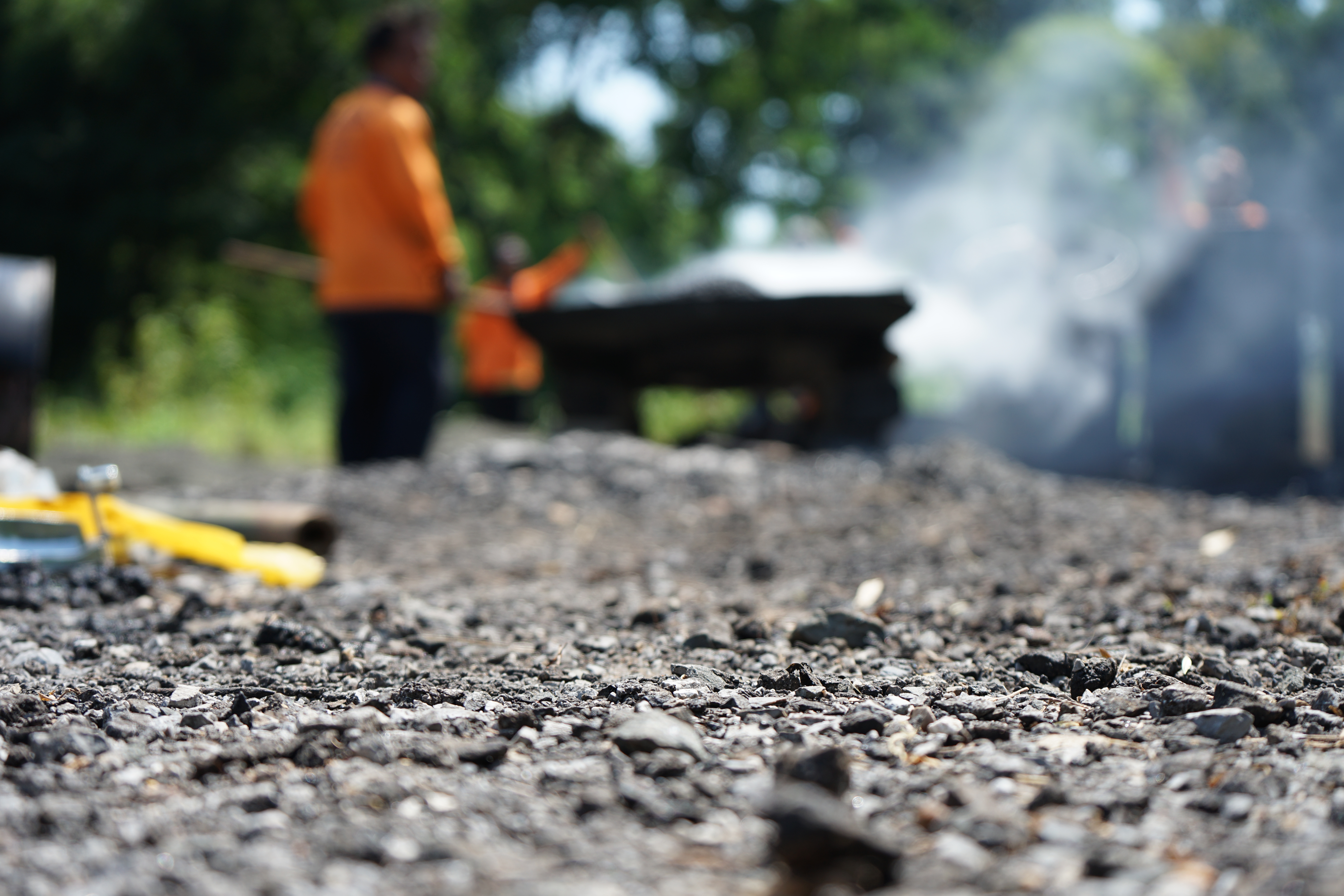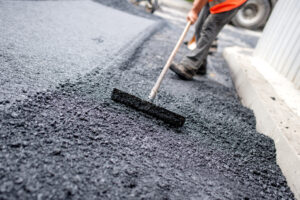If you’ve ever driven on a smooth asphalt surface that seems to glide effortlessly beneath your tires, chances are you’ve experienced the benefits of Hot Mix Asphalt (HMA). HMA isn’t just a blend of rocks and asphalt; it’s a carefully engineered mix designed to withstand heavy traffic, harsh weather conditions, and the test of time. In this blog, we’ll break down everything you need to know about HMA – from its composition and production process to its many applications and benefits. Whether you’re a property owner looking to enhance your pavement or simply curious about how roads are built, this guide has you covered.
What is Hot Mix Asphalt?
Hot Mix Asphalt (HMA) is one of the most popular materials for paving roads, highways, parking lots, and driveways. As the name suggests, it’s a mixture of aggregates (such as sand, gravel, and crushed stone) combined with a binder known as bitumen. This mix is heated to high temperatures to bind the components together robustly. HMA is a valuable resource for construction, as it forms a smooth, durable surface that can withstand heavy traffic, extreme weather, and years of use.
HMA is known for its flexibility, clean finish, and long-lasting performance. It is especially sought after for its ability to maintain a high level of comfort and safety for drivers while resisting deformation under the weight of traffic. The combination of durability, affordability, and ease of maintenance has made it a go-to solution for both residential and large-scale paving projects. HMA comes in a few different forms to adhere to specific functions and environments.
Types of Hot Mix Asphalt
Here are the three main types of mixes and their specialties:
- Dense-Graded Mixes: Dense-graded mixes are the most common type of HMA. They utilize a wide range of aggregate sizes to create a strong surface and are primarily used for high-traffic areas like highways and local roads.
- Open-Graded Mixes: Open-graded mixes have larger gaps between the aggregates, allowing water to drain through the surface. These are perfect for areas with drainage concerns, such as regions with heavy rainfall or freeze-thaw cycles.
- Stone Matrix Asphalt (SMA): SMA uses larger aggregates and a higher binder content to provide resistance to rutting and wear. Like dense-graded mixes, this type is usually used in high-traffic areas like highways, where long-lasting performance is a must. Although it maximizes durability, SMA is generally more expensive than dense-graded mixes.
If you’re looking into using HMA for a paving project, it’s important to consider the different options and what they offer. Budget, effectiveness, and location are all important factors.
How is Hot Mix Asphalt Made?
Creating Hot Mix Asphalt is a complex process that starts with selecting high-quality aggregates and bitumen. The aggregates are heated to temperatures between 300°F to 350°F (149°C to 177°C) in a drum or mixing plant. Meanwhile, the bitumen is heated separately to the same temperature to become fluid enough to mix properly.
Once the aggregates and bitumen are heated up enough, the two are mixed together in a controlled environment. The mixing stage is thorough and ensures that the aggregates are fully coated with bitumen. The hot, cohesive mix is then transported to the job site and maintains its temperature, ready to be laid down by paving equipment. On arrival, it’s applied and compacted to create a smooth, sturdy surface.
The entire process is carefully monitored to meet quality standards. As a result, the final product reaps the many benefits of HMA.
Benefits of Using Hot Mix Asphalt
Hot Mix Asphalt offers several key advantages over other paving materials:
- Durability: HMA is built to last. Proper installation and maintenance techniques can extend its life to 20–30 years. It’s able to shoulder heavy traffic, extreme weather, and the wear and tear from regular use.
- Smooth and Comfortable: The smooth finish of HMA makes for a more comfortable and quieter driving experience. The surface also offers better traction that reduces the risk of skidding in wet or icy conditions.
- Cost-Effective: HMA is less expensive than alternatives like concrete, both in terms of material and installation costs. Its installation process is relatively quick, which keeps labor costs lower, and the raw materials are less expensive as well.
- Environmental Benefits: HMA is also 100% recyclable. Old asphalt can be reclaimed, processed, and reused in new projects, which reduces the need for new raw materials and minimizes its environmental impact. This recycling process makes HMA a more sustainable choice than other materials.
- Versatility: HMA can be used in many different types of applications, from residential driveways to large-scale infrastructure projects. It performs well in different weather conditions and is highly adaptable.
HMA is a popular paving choice for good reason: providing long-lasting strength and comfort while having a relatively low environmental impact. Its versatility makes it a leading contender for a variety of paving projects.
Common Applications of Hot Mix Asphalt
Here are some of the most common applications of HMA:
- Roads and Highways: HMA is commonly used for roads and highways because of its toughness. It can handle the constant wear and tear from traffic while keeping a smooth, even surface. Since HMA can fight against harsh weather conditions, it’s a great choice for both hot and cold climates.
- Residential Driveways: HMA provides an affordable, durable, and attractive option for residential driveways. It enhances the curb appeal of homes while offering a long-lasting solution for homeowners. It is important, however, to stay on top of basic maintenance, repairs, and sealcoating to extend the asphalt’s lifespan.
- Parking Lots: Commercial parking lots often use HMA because it’s resistant to the heavy burden of cars and trucks. They can stay in good condition for many years with routine maintenance.
- Airports: Runways and taxiways use HMA for its durability and smoothness, which supports aircraft safety and performance. HMA can handle heavy airplanes and help them glide across the runway.
- Pothole Repairs: HMA is often used to repair potholes and other pavement damage. Its quick setting time and ease of application make it a wise choice for maintaining paved surfaces and keeping roads safe.
Hot Mix Asphalt is an adaptable resource that finds uses in every corner of infrastructure. If you’re a property owner or homeowner in need of a cost-effective and reliable pavement, HMA is the way to go.
Need Asphalt Maintenance Help? Contact Superior Asphalt
As you can see, Hot Mix Asphalt offers a reliable and cost-effective solution for a wide variety of paving projects. From highways to residential driveways, HMA stands out for its durability, flexibility, and environmental benefits. At Superior Asphalt, we’re here to help you keep your pavement in top shape. Whether you’re considering a new installation, looking for expert advice, or in need of asphalt repairs, our team has the expertise and high-quality materials you can trust. Ready to get started? Contact us today for asphalt repair services.



